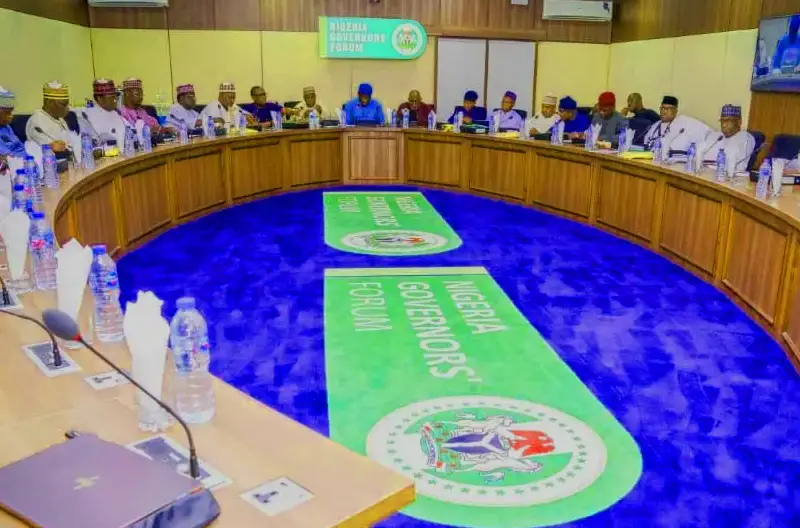- Home
- Uncategorized
- Gbas Gbos: Nigerian Governors Declare Inability to Pay N60,000 Minimum Wage

Gbas Gbos: Nigerian Governors Declare Inability to Pay N60,000 Minimum Wage
Nigerian Governors Declare Inability to Pay N60,000 Minimum Wage
In a significant development, Nigerian state governors have collectively declared their inability to meet the proposed N60,000 minimum wage due to budgetary constraints. The announcement was made following a recent meeting of the Nigeria Governors’ Forum (NGF), where the financial implications of the new wage proposal were thoroughly discussed.
The 36 state governors, on the platform of the Nigeria Governors Forum (NGF), emphasized that the N60,000 minimum wage proposal is not sustainable and would result in severe financial strain on many states. They argued that accepting the proposal would force some states to borrow just to meet monthly salary obligations, leaving no funds for developmental projects.
The NGF made their position clear in a statement issued on Friday by the acting Director of Media and Public Affairs, Hajiya Halimah Ahmed, titled “The forum’s stand on the N60,000 minimum wage not sustainable: NGF.”
“The Nigeria Governors’ Forum (NGF) is in agreement that a new minimum wage is due,” the statement read. “The Forum also sympathizes with labor unions in their push for higher wages. However, the Forum urges all parties to consider the fact that the minimum wage negotiations also involve consequential adjustments across all cadres, including pensioners.”
The statement continued, “The NGF cautions parties in this important discussion to look beyond just signing a document for the sake of it; any agreement to be signed should be sustainable and realistic. All things considered, the NGF holds that the N60,000 minimum wage proposal is not sustainable and cannot fly. It will simply mean that many states will spend all their FAAC allocations on just paying salaries with nothing left for development purposes.”
Governor AbdulRahman AbdulRazaq of Kwara State, Chairman of the NGF, reiterated this sentiment, stating that while the governors are committed to improving the welfare of workers, the current economic realities make the proposed minimum wage unfeasible. “We recognize the legitimate demands of our workers for a living wage, but we must also consider the financial health of our states. Many of our states are already struggling to meet existing salary obligations and other essential services,” AbdulRazaq explained.
The proposed N60,000 minimum wage, a major demand of the Nigeria Labour Congress (NLC) and other labor unions, aims to address the rising cost of living and ensure a better standard of living for workers across the country. However, the governors argue that without significant federal support or an increase in state revenues, the implementation of such a wage increase would lead to severe financial strain and potentially compromise the delivery of critical public services.
Governor Nasir El-Rufai of Kaduna State emphasized the need for a realistic approach to wage adjustments. “While we fully support the need for improved wages, it is imperative that any new wage structure is sustainable and does not lead to fiscal instability. We must balance the welfare of our workers with the economic viability of our states,” El-Rufai noted.
In response to the governors’ position, the NLC has called for an urgent meeting with federal authorities to explore possible solutions and ensure that the new minimum wage can be implemented without adverse effects on state economies. NLC President Ayuba Wabba stressed the importance of finding a middle ground that meets the needs of workers while maintaining fiscal responsibility.
The federal government has yet to issue a statement regarding the governors’ declaration, but sources indicate that discussions are ongoing to find a compromise. Possible solutions being considered include phased implementation of the new wage, increased federal allocations to states, or targeted financial assistance to states most in need.
As the debate continues, many Nigerian workers remain hopeful that a resolution will be reached that addresses their needs without compromising the economic stability of the states. The coming weeks are expected to see intensified negotiations between labor unions, state governments, and federal authorities as they work towards a viable solution.